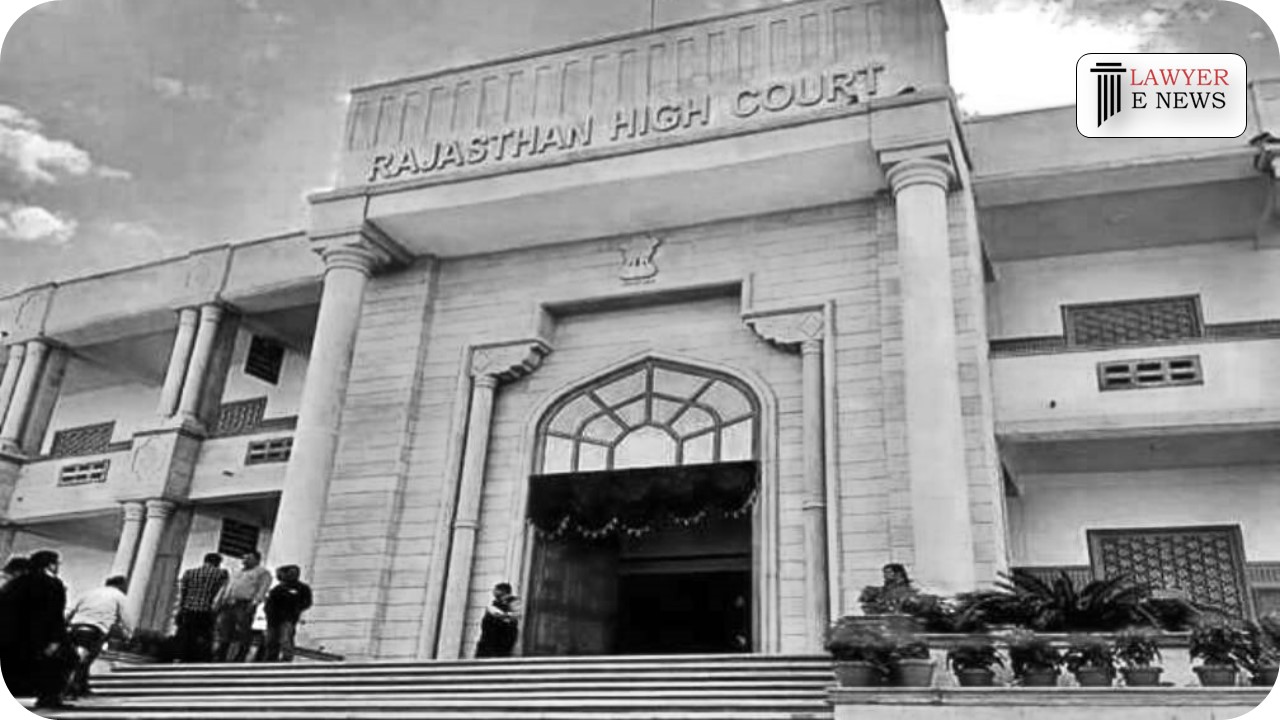-
by Admin
15 February 2026 5:35 AM



Bail granted due to lack of substantive evidence beyond co-accused’s custodial confession, emphasizing requirements under Sections 25, 26, and 27 of the Indian Evidence Act.
The Rajasthan High Court has granted bail to Dheerap Singh, Bane Singh, and Pep Singh in a significant ruling, emphasizing the necessity of corroborative evidence beyond the confessional statement of a co-accused during police custody. The judgment, delivered by Justice Farjand Ali, highlights the stringent requirements for admissibility of confessions under Section 27 of the Indian Evidence Act and Section 37 of the NDPS Act.
The case stems from an incident on September 3, 2021, when the police attempted to intercept two motorcycles during a routine check in Dug, Jhalawad District. Upon being pursued, the riders fled, but the police managed to apprehend Elkar Singh, who subsequently named Dheerap Singh, Bane Singh, and Pep Singh as his accomplices. Based solely on Elkar Singh’s custodial confession, the three petitioners were arrested and charged under Sections 8/15 and 29 of the NDPS Act.
The court scrutinized the reliance on the co-accused’s confession, noting that the statement did not lead to any discovery of new facts, a requirement under Section 27 of the Indian Evidence Act. “For the application of Section 27, the statement must be split into its components and only those portions which were the immediate cause of the discovery would be legal evidence,” the judgment quoted from the precedent set in Mohd. Inayatullah v. State of Maharashtra.
Justice Farjand Ali emphasized that no new information or physical evidence was discovered as a result of Elkar Singh’s confession that could substantiate the involvement of the petitioners. “In the absence of any corroborative evidence, the confessional statement remains just illusory knowledge and does not constitute a fact proved,” the court observed.
The judgment reaffirmed the principle that a confession made to a police officer is inadmissible unless it leads to the discovery of a new fact. The court stressed that the prosecution’s case against the petitioners was weak, as it relied solely on the uncorroborated confession of the co-accused. Justice Ali further noted the need for substantial evidence to meet the stringent conditions under Section 37 of the NDPS Act for denying bail in cases involving commercial quantities of contraband.
“It can be manifested from a simple reading of Section 27 of the Evidence Act and the judgments referred above that only information in the form of confession received from disclosure made by an accused cannot be taken as reliable piece of evidence in isolation until there is a discovery or a recovery or another fact to corroborate the said information and prove its veracity,” stated Justice Farjand Ali in the ruling.
The Rajasthan High Court’s decision to grant bail to Dheerap Singh, Bane Singh, and Pep Singh underscores the judiciary’s adherence to the principles of evidence law, particularly the need for corroborative proof in criminal cases. This ruling sets a significant precedent in the interpretation of confessional statements under the Indian Evidence Act and the NDPS Act, potentially impacting future narcotics cases and the evidentiary standards required for conviction.
Date of Decision: 5th July, 2024
Dheerap Singh & Ors. V. State of Rajasthan
